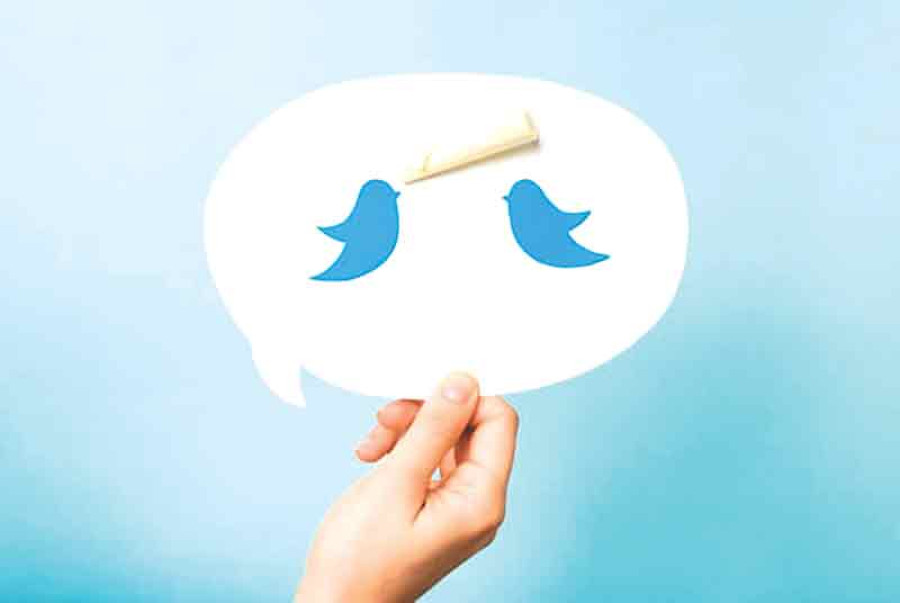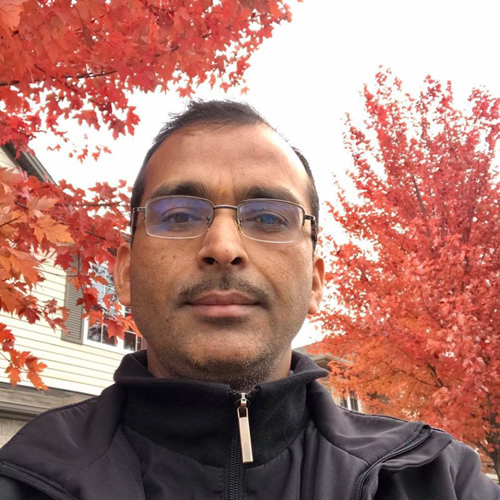Opinion
Said a little bird
US President Donald Trump uses Twitter not only to express his frustration and displeasure, but also to attack anyone without caring about diplomacy and decency.
Bhanu Bhakta Acharya
US President Donald Trump uses Twitter not only to express his frustration and displeasure, but also to attack anyone without caring about diplomacy and decency. The micro-blogging site is the best tool to bypass, in his own words, ‘dishonest media’ and reach the general public. It is obvious that the media is immensely influential in shaping policy and politics. Napoleon famously said, “Four hostile newspapers are more to be feared than a thousand bayonets.” Most democratic governments or political leaders, even today, try not to get on the wrong side of the media. However, President Trump has antagonised dozens of big US media organisations with his radical political viewpoints.
Trump’s media war
Within 24 hours of being sworn in, two incidents made President Trump aggressive against the media. One, a major US media organisation started circulating pictures showing that the crowd at Trump’s inauguration was much smaller than during Barack Obama’s inauguration in 2009. President Trump accused the media of twisting the figures and altering the images to diminish the historic public support for him. According to him, approximately 1.5 million people had gathered at his swearing-in ceremony, the largest audience ever to witness any presidential inauguration. Two, Time magazine ran a report that Trump had removed Martin Luther King’s bust from the Oval Office. He accused Time of spreading a rumour about him.
Referring to these cases, Trump vowed to make the media accountable, and signalled that the ongoing row between the US press and the president could intensify. The conflict between the two is nothing new, as Trump was an unwelcome presidential candidate among America’s ‘mainstream’ newspapers. Only two out of the 100 largest US newspapers favoured Trump. Even though thousands of journalists frequently warned that Trump was not the right candidate, he won the election, shocking media pundits and opinion leaders.
Trump’s victory is, therefore, often interpreted as an historic failure of journalism against social media outlets with regard to shaping public opinion. Social media outlets, unlike traditional media, provide a platform for unfiltered expressions. They can foster direct interaction between leaders and the public who do not prefer circumlocutory expressions. Traditional news media, despite Trump’s avoidance, is still relevant for the public to understand the strategic interests of politicians. The president has vowed to wage war against ‘dishonest media’, prompting the Committee to Protect Journalists, an advocacy organisation for press freedom, to warn that the Trump administration could be a significant threat to the American press.
Trump vs Prachanda
Nepal has seen many political leaders like Trump who always accuse the media of being dishonest, twisting the facts and tarnishing their public image. Unlike Trump, however, they don’t have the guts to challenge the media directly by working to promote the interest of the general public or by implementing the political agenda contained in their election manifestos. Nepal’s current Prime Minister Pushpa Kamal Dahal ‘Prachanda’ is an expert in making radical speeches, but he doesn’t know how to use social media networks to oppose news coverage that is against his interest.
There are some interesting similarities between Trump and Dahal. Both leaders defend propaganda as facts, and have many complaints against the media with regard to news coverage and misreporting. During the US election campaign, Trump visited Mexico and claimed that the Mexican president had agreed to pay the cost of erecting a wall along the US-Mexico border. Similarly, Dahal said that he had held a trilateral meeting with the Chinese president and the Indian prime minister during the BRICS conference in Goa last October. Actually, both claims were just propaganda. There are some universal principles of government communication that it must be accurate, honest, timely and transparent. To be frank, Trump and Dahal often do not care about these principles.
There are some tactical differences between Trump and Dahal with regard to handling the media. The US president often challenges the news media regardless of whether they are big or small, whereas Dahal seeks the support of all media outlets for everything he does whether or not it serves the national interest. Dahal and his office post tweets on the official Twitter account with the handle @PM_Nepal to let the public know about the activities of the government. However, Dahal’s Twitter account is an inactive and ritualistic tool like other communication channels of the government. There have been altogether 52 tweets since Dahal assumed office last August, an average of two tweets per week. Furthermore, this social media tool has not been updated since November 26, as if the prime minister of Nepal has done nothing since then.
Trump is not concerned by the possible consequences of his tweets or speeches related to government policy. He defends his words even if he is the only one doing so. And he doesn’t care what price he may have to pay. But Dahal uses a trial balloon strategy: Information is leaked through various channels to assess public reaction to key government policy changes, like whether to allow naturalised citizens to assume high political positions, or whether to adopt Hindi as a lingua franca in Nepal. Both leaders spend a significant amount of time defending their position, countering media allegations and attacking those who are critical of their performance.
To sum up, social media outlets allow users to have more direct and unmediated communication with the public and counter misleading and sensational media coverage. Dahal uses Twitter just to show that the prime minister of Nepal has a Twitter account, whereas Trump uses it to bypass ‘mainstream media’ that is critical of his propaganda. Both leaders are confronted by dozens of hostile media outlets, which is a challenge to running their administrations successfully.
Acharya is affiliated to the University of Ottawa, Canada




 20.72°C Kathmandu
20.72°C Kathmandu





.jpg&w=200&height=120)





